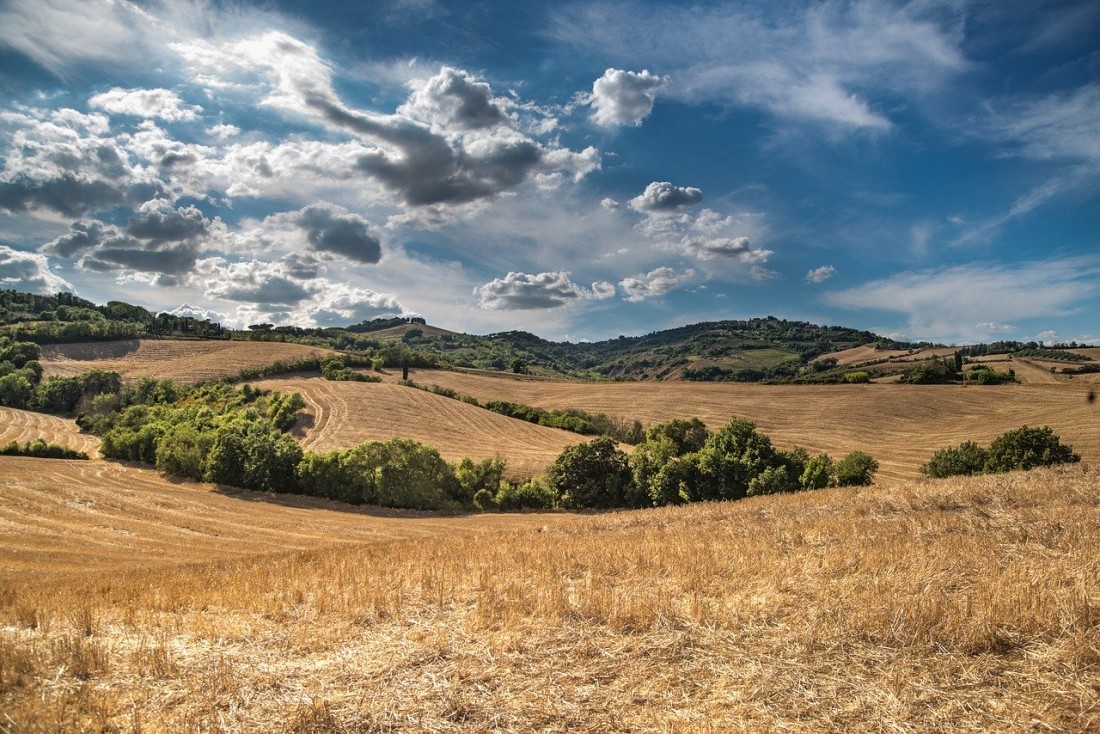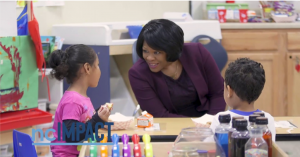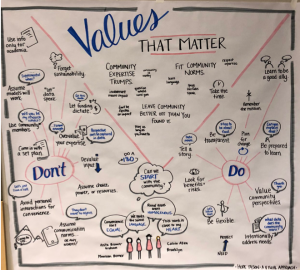The Dos and Don’ts of Working in Rural Communities
Those working in rural communities often come across situations in which it may be unclear what the next step is or how to go about that next step.

North Carolina’s demography represents a high concentration of rural areas. In fact, there are 80 counties with an average population density of 250 people per square mile or less (NC Rural Center, 2016)
Those working in rural communities often come across situations in which it may be unclear what the next step is or how to go about that next step. The following categories represent different aspects of working in rural communities from a presentation given on January 24, 2020 by Calvin Allen, Maureen Berner, Anita Brown-Graham, and Brooklyn Mills.
YOUR INTERACTIONS
DON’T:
- Avoid personal interactions for convenience
- Assume norms around communication
- Assume choice, power, ability, or resources: Either that folks don’t have them or that they do
DO:
- Develop maximum opportunities for personal interactions. Physically immerse yourself locally as much as possible. Face to face interactions matter for trust building and learning the people and organizations in the community.
YOUR PARTNERSHIPS
DON’T:
- Create a perception that your expertise is greater than community expertise
- Devalue input from the community—they are the experts of their own community
- Come in with a set plan without the expectation to adapt
DO:
- Treat the community as a true partner
Involve local community members as experts, thought leaders, and partners, not research subjects. Their input will be invaluable to ensuring your project’s success. Take their feedback and suggestions to heart. Compensate them for their time, if possible.
YOUR INTENTIONS
DON’T:
- Focus solely on scholarly research outcomes
- Use community members as research subjects
- Let parameters of funding be SOLELY in control
DO:
- Intentionally address local needs and values obtained from research findings
Be serious about addressing community needs and improving local quality of life. Your work may well lead to important publications in scientific journals, but it is not the responsibility of community residents to help researchers achieve that. They are motivated to participate to make things better in their community.

YOUR RESPONSIBILITY
DON’T:
- Assume norms and systems of rural communities
- Assume that you have the knowledge required
- Assume that just because models worked in other similar settings, they will work here.
DO:
- Be prepared always to learn and shift
Recognize the limited knowledge of the researcher about place-based economic and social factors influencing program and service use in rural areas. Don’t assume you can always import models that have worked in urban settings.
YOUR END GOALS
DON’T:
- Forget to fully wrap up a project with a future sustainable plan for the community.
- Have an end goal of using information purely for academic purposes. Consider developing products that can also be used by the community
DO:
- Leave a legacy of enhanced capacity and sustainability
Enhance skills, competencies, and social capital among community residents. It is the researcher’s responsibility to develop local capacity to sustain interventions and intervention evaluation after the initial research is completed and there is no more funding.
YOUR DATA
DON’T:
- Assume that your data speaks for itself
- Use data-oriented language that is not accessible
- Expect that things will always go smooth sailing
DO:
- Tell a story with the data
- Be open about the fallibility of data
- Be ready for questions
- Be honest when you don’t know the answer
Find a way to connect with communities around authentic stories of what’s going on. Make sure to go beyond the numbers.

Drawing provided by: Hope Tyson
